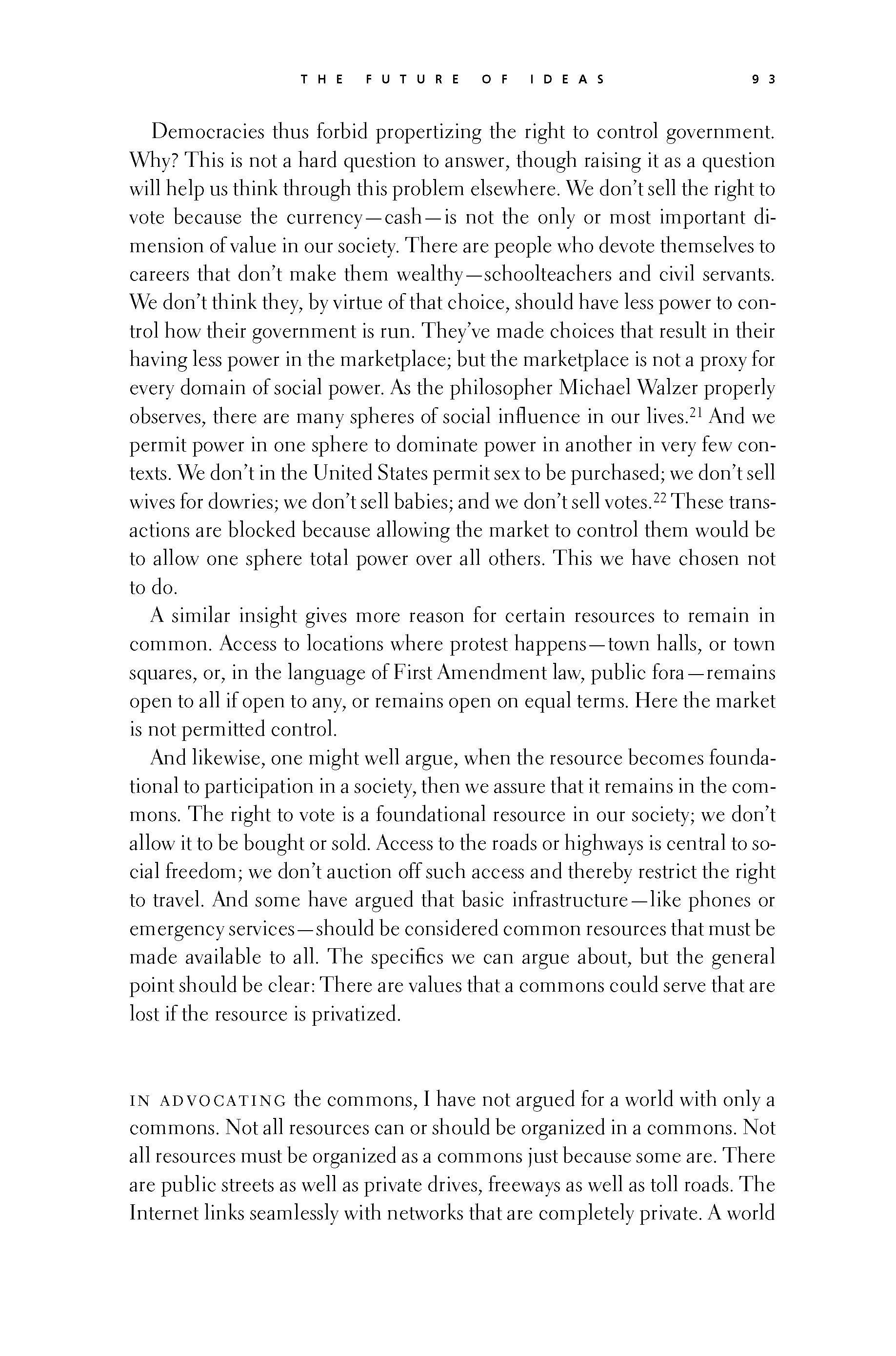 p092 _
-chap- _
toc-1 _
p093w _
toc-2 _
+chap+ _
p094
p092 _
-chap- _
toc-1 _
p093w _
toc-2 _
+chap+ _
p094
Democracies thus forbid propertizing the right to control government.
Why? This is not a hard question to answer, though raising it as a question
will help us think through this problem elsewhere. We don't sell the right to
vote because the currency -- cash -- is not the only or most important di-
mension of value in our society. There are people who devote themselves to
careers that don't make them wealthy -- schoolteachers and civil servants.
We don't think they, by virtue of that choice, should have less power to con-
trol how their government is run. They've made choices that result in their
having less power in the marketplace; but the marketplace is not a proxy for
every domain of social power. As the philosopher Michael Walzer properly
observes, there are many spheres of social influence in our lives.[6-21] And we
permit power in one sphere to dominate power in another in very few con-
texts. We don't in the United States permit sex to be purchased; we don't sell
wives for dowries; we don't sell babies; and we don't sell votes.[6-22] These trans-
actions are blocked because allowing the market to control them would be
to allow one sphere total power over all others. This we have chosen not
to do.
A similar insight gives more reason for certain resources to remain in
common. Access to locations where protest happens -- town halls, or town
squares, or, in the language of First Amendment law, public fora -- remains
open to all if open to any, or remains open on equal terms. Here the market
is not permitted control.
And likewise, one might well argue, when the resource becomes founda-
tional to participation in a society, then we assure that it remains in the com-
mons. The right to vote is a foundational resource in our society; we don't
allow it to be bought or sold. Access to the roads or highways is central to so-
cial freedom; we don't auction off such access and thereby restrict the right
to travel. And some have argued that basic infrastructure -- like phones or
emergency services -- should be considered common resources that must be
made available to all. The specifics we can argue about, but the general
point should be clear: There are values that a commons could serve that are
lost if the resource is privatized.
///\\\
In advocating the commons, I have not argued for a world with only a
commons. Not all resources can or should be organized in a commons. Not
all resources must be organized as a commons just because some are. There
are public streets as well as private drives, freeways as well as toll roads. The
Internet links seamlessly with networks that are completely private. A world
[[93]]
p092 _
-chap- _
toc-1 _
p093w _
toc-2 _
+chap+ _
p094